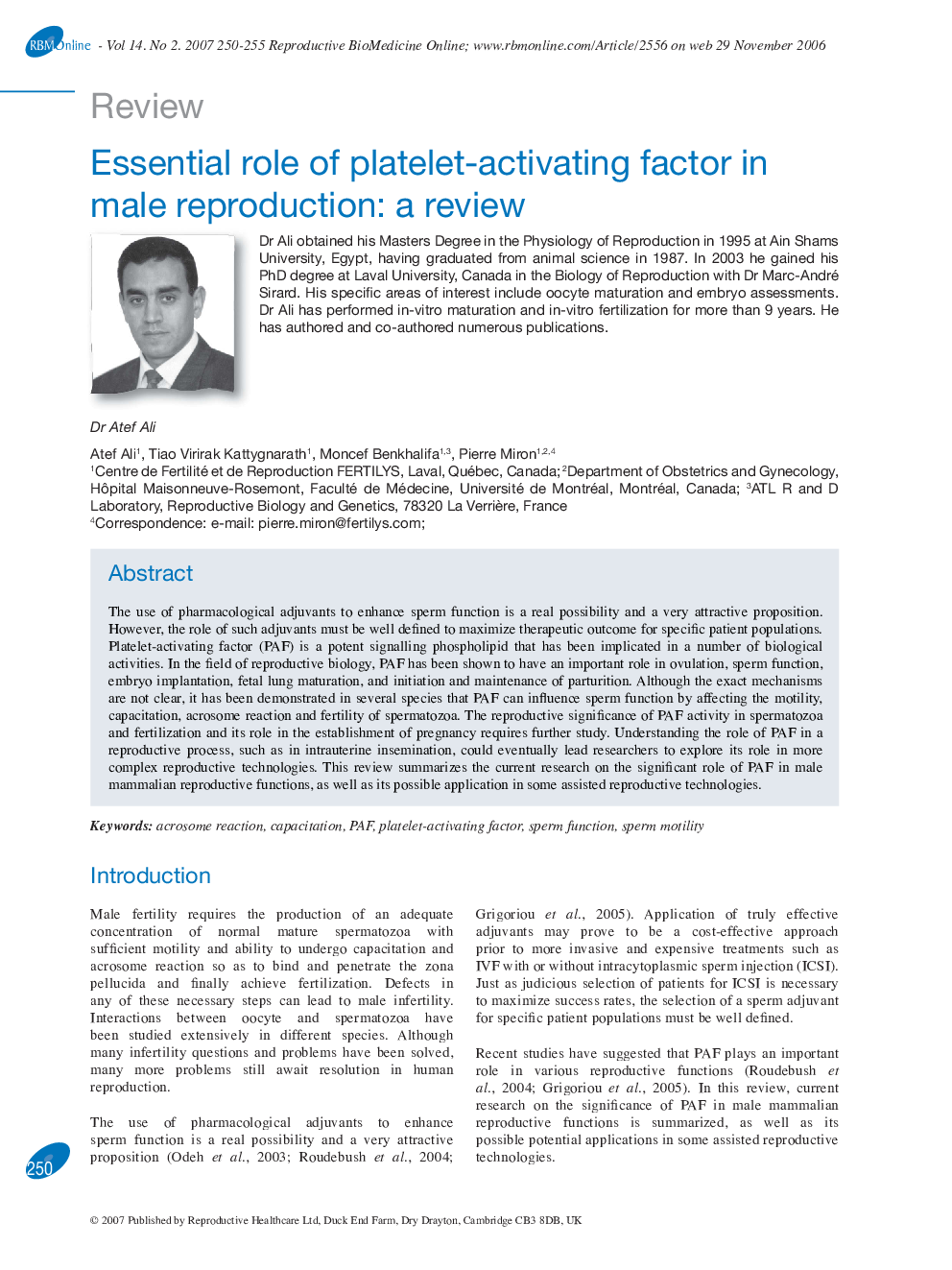| Article ID | Journal | Published Year | Pages | File Type |
|---|---|---|---|---|
| 3973235 | Reproductive BioMedicine Online | 2007 | 6 Pages |
The use of pharmacological adjuvants to enhance sperm function is a real possibility and a very attractive proposition. However, the role of such adjuvants must be well defined to maximize therapeutic outcome for specific patient populations. Platelet-activating factor (PAF) is a potent signalling phospholipid that has been implicated in a number of biological activities. In the field of reproductive biology, PAF has been shown to have an important role in ovulation, sperm function, embryo implantation, fetal lung maturation, and initiation and maintenance of parturition. Although the exact mechanisms are not clear, it has been demonstrated in several species that PAF can influence sperm function by affecting the motility, capacitation, acrosome reaction and fertility of spermatozoa. The reproductive significance of PAF activity in spermatozoa and fertilization and its role in the establishment of pregnancy requires further study. Understanding the role of PAF in a reproductive process, such as in intrauterine insemination, could eventually lead researchers to explore its role in more complex reproductive technologies. This review summarizes the current research on the significant role of PAF in male mammalian reproductive functions, as well as its possible application in some assisted reproductive technologies.
